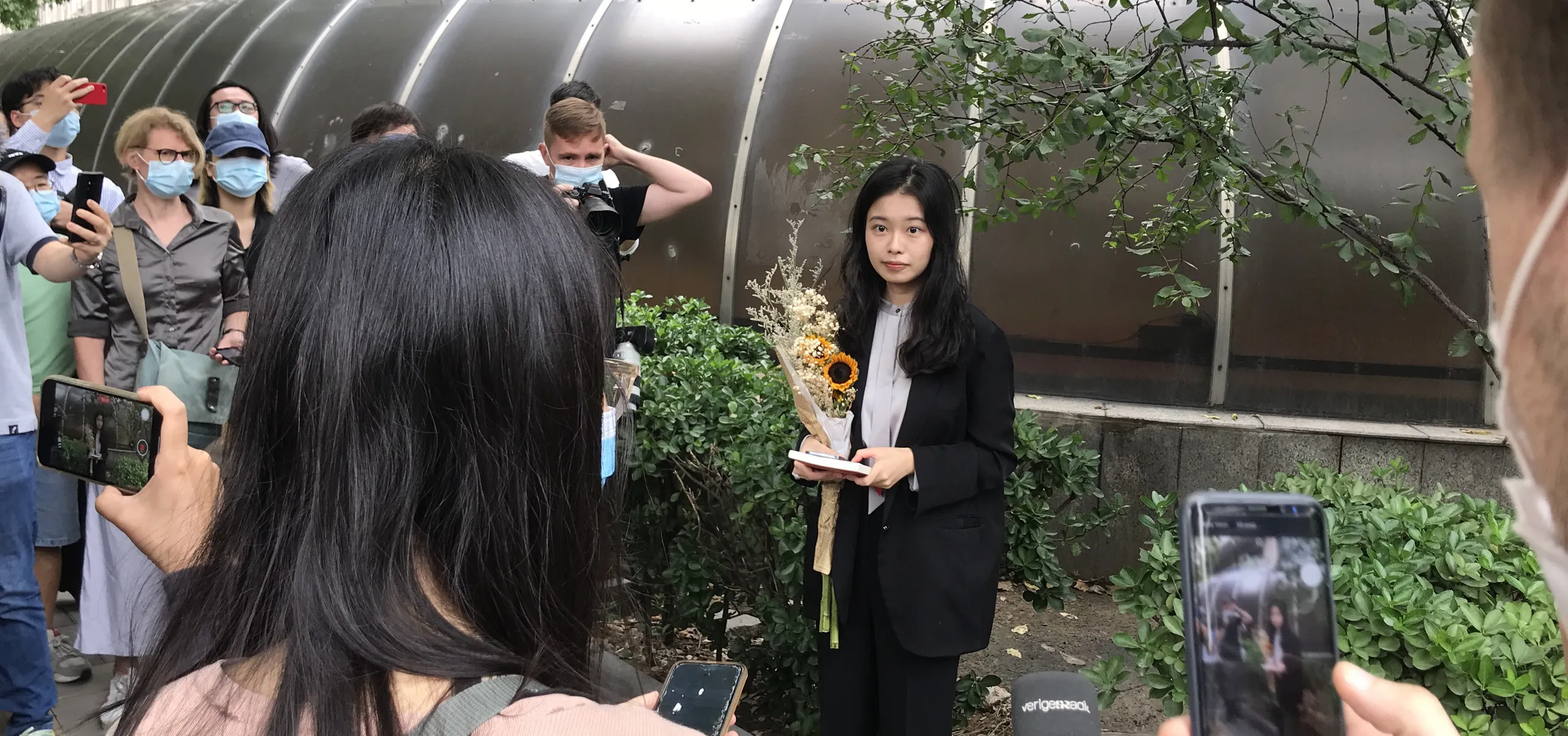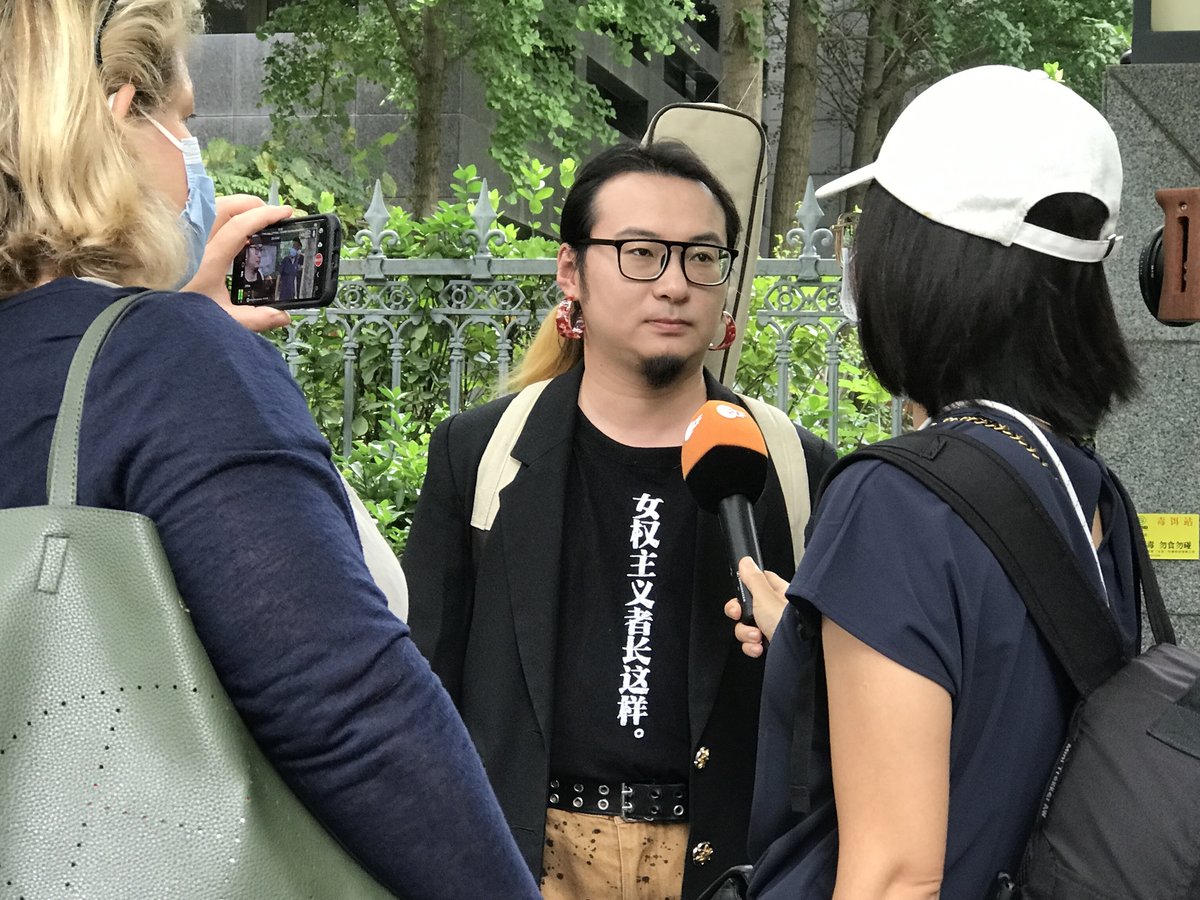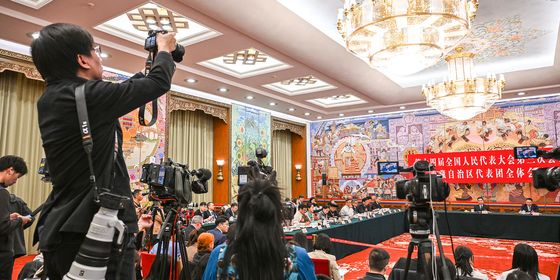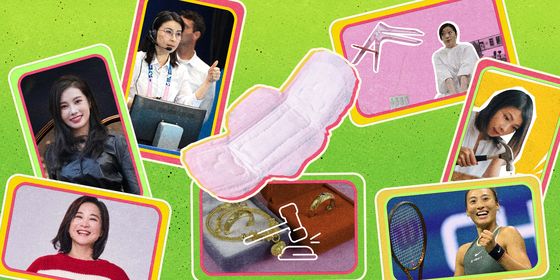Why are supporters demonstrating outside the courthouse on this high-profile sexual harassment lawsuit?
Late on Tuesday evening, Zhou Xiaoxuan finally emerged from the Haidian People’s Court in Beijing, clasping a red-bound copy of China’s Civil Code, looking weary after her mammoth court hearing ended in defeat. “I can’t go through this for another three years. I was only 21 when it happened, but now I am 28,” she told journalists through teary eyes. “I am very exhausted now.”
The court had ruled against Zhou, better known in domestic media as Xianzi, in her high-profile sexual harassment case against Zhu Jun, a host with state broadcaster CCTV, citing a lack of evidence. However, Zhou has since vowed to appeal the verdict.
Tuesday was the second court session in the first hearing of a case that has captured massive attention in China, with supporters and opponents previously trading barbs on social media platforms like Weibo, until those discussions were shut down by the platforms when Zhou's latest court date this week approached. Zhou alleges that Zhu groped and forcibly kissed her when she worked as an intern at CCTV in 2014, when she was 21 years old. The first court session had taken place in December last year, three years after Zhou first filed her civil lawsuit against Zhu in 2018.
Last year, large crowds of supporters waited outside the court for the decision, held up placards, and chanted in support of Zhou, a sign of how this case more than any other has captured the hearts of what supporters have dubbed a Chinese “#MeToo” movement.
On Tuesday, the crowd was smaller and hemmed in by a sizable police force, but some supporters were enthusiastic nonetheless. A sociology student in his 20s, who introduced himself as “Sisyphus,” waited outside the court for hours to hear the result. “Being here and showing my support could encourage other victims, and send them the message that there are people who believe them,” he tells TWOC, explaining why he had come.
For Xiaodao (pseudonym), another student supporter outside the courthouse, the case is important because it’s an indication of societal progress. “In the past, it was so difficult to get cases related to sexual harassment into the judicial process. Zhou was very brave to step forward. In the past, if you sexually harassed a woman, you probably didn’t have to pay any price. Now, at least we can file a lawsuit.”
Zhou herself expressed similar sentiments to TWOC after the verdict: “Maybe some people think losing the case means we lost, but I don’t think this way. I think without everyone’s efforts…it might not have gotten to the second court session, and without everyone’s support at the start of the first court session, the case might not have been heard. Even getting to lose the case is the product of all our hard work and struggle,” she said over a video call.
Just getting to this point has been a torturous journey for sexual harassment victims and women’s rights supporters, but recent years have seen several high profile cases covered in the media. In 2019, a landmark case saw two female social workers identified as Liu Li and Xiao Xing win a lawsuit against their former boss Liu Meng, director-general of NGO One Day For in Chengdu, over sexual harassment. However, Liu was only forced to apologize within 15 days. In August of this year, singer Kris Wu was arrested on suspicion of rape after a woman came forward to accuse him of predatory sexual behavior such as forcing women, including some minors, to have sex with him with promises of employment. Another report of sexual harassment in late July at tech company Alibaba saw a manager at the company fired for allegedly raping a colleague, though police have since dropped the case against him.
But authorities appear to want to dampen the popularity of Zhou's case, while social media platforms have been equally cautious. “Sisyphus,” for example, said he’d been warned by police not to attend on Tuesday or get involved in any “related activities” after he attended Zhou’s hearing last year. He was told to visit a police station on Tuesday morning, where he was questioned about his internet activities and warned not to “cause trouble,” but still made it to the court to show his support. Those who demonstrated outside both sessions said security was much tighter on Tuesday compared to Zhou's first court appearance, where authorities were seemingly taken off-guard by the turnout. They also said there was a smaller gathering this time around.
Outside the court on Tuesday, uniformed and plain-clothed police patrolled in force. Vivian (pseudonym), a 23-year-old law student in Beijing, had to show her ID card to officers twice on the grounds of what they called “public security.” “I feel a strong sense of insecurity, as we are surrounded [by police],” she told TWOC. “We don’t know what the police will do with our information.” Though the atmosphere was mostly calm outside the courthouse, officers would gather close and listen in whenever journalists tried to interview supporters. When Zhou first appeared at the court and tried to speak to the supporters and journalists, she was quickly whisked away by dozens of middle-aged people in civilian clothing who cited “social distancing.”
Many of Zhou's supporters are college students, according to Vivian. But many left after they received calls from their university counselors threatening “punishments” if they did not return to campus.Online, Weibo and WeChat have removed scores of posts related to the case, both those that support Zhu and those that support Zhou, while few domestic media outlets have covered the second court session in detail. Meanwhile, Zhou’s supporters are also targeted online by supporters of Zhu, misogynistic trolls, and ultra-nationalists who see the #MeToo movement as “dangerous Western ideology.” “Once they knew my real name, they targeted all the people who had tagged me [on Weibo],” Zhou told TWOC. “Then they verbally abused my high school classmates and work colleagues.” She also claims her friends were doxxed, and her boyfriend received harassing messages. “They often say that you are criticizing the country…or working with ‘foreign powers.’” Vivian, meanwhile, deleted her Weibo account on the afternoon of Zhou's court appearance “in case it will be monitored” by authorities.
Though this paints an intimidating picture for sexual harassment victims to face in China if they go public, that is precisely the reason why some of Zhou’s supporters are so committed. “I don’t technically know who is right or who is wrong, or whether Zhu Jun is guilty. I chose to support Xianzi because she is not as powerful as Zhu Jun,” said “Sisyphus.” “That’s where I think the core of the #MeToo movement is, that the victims are afraid to act or fight when attacks happen, because of the inequality of power and social classes.”
Xiaodao is also unperturbed, “If there is another case like this, I will no doubt support women to defend for their own rights, until one day we can win cases over sexual harassment,” she said. Likewise, Zhou said she will appeal for as long as the courts will hear her case, even if it means more losses: “Maybe only with the accumulation of lots of failures together, can the road forward open up.”















